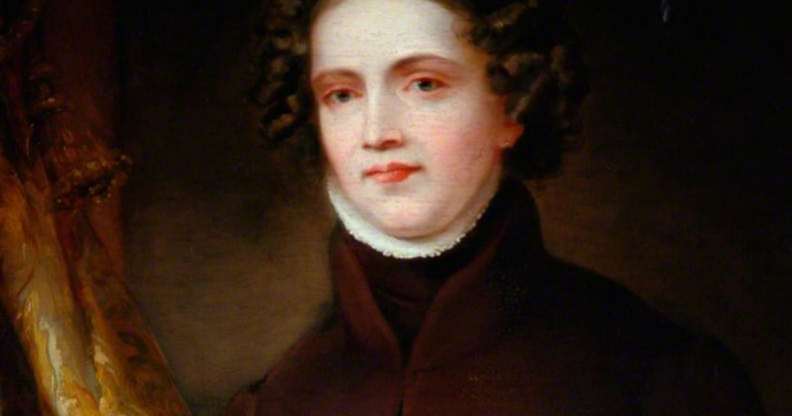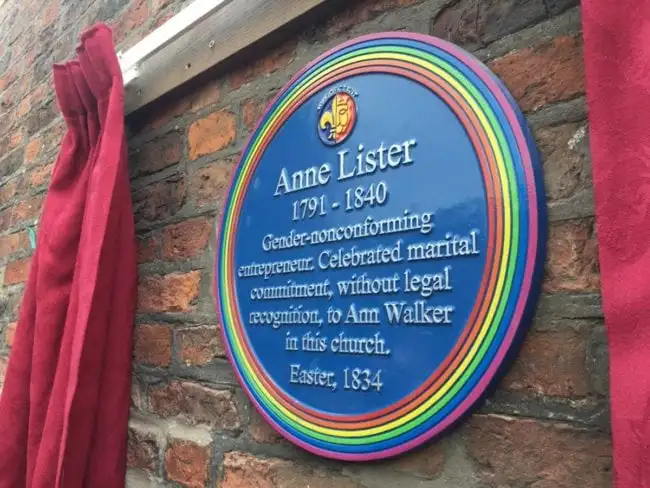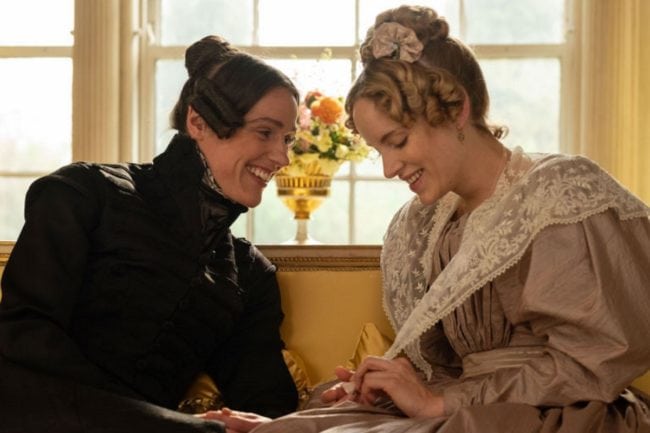Anne Lister, Britain’s first modern lesbian, didn’t want you to know about her sex life

Anne Lister (1791-1840)
Anne Lister (1791-1840)
If Anne Lister had her way, no one would have known of her lesbian affairs.
Of course, that’s not quite how things turned out. Almost two centuries after the Halifax-born landowner passed away, she is known across the nation as Britain’s first modern lesbian: the subject of documentaries, theatre plays and the critically-acclaimed BBC drama, Gentleman Jack.
Lister, born April 3, 1791, was a contemporary of some of British literature’s most famed authors, including Jane Austen, the Brontë sisters and Lord Byron, but her work only became known to the world in the late 1980s, when Helena Whitbread, who grew up in Halifax like Lister, discovered, deciphered and published her diaries.
Throughout her life, Lister had taken great care to ensure no one would ever be able to read the most personal parts of her 6,600-page diaries.
“Anne was a lover of the classics and the code she made was a mix of Greek letters and some symbols she devised on her own,” Whitbread tells PinkNews. “She was quite confident that no one would ever be able to crack the code.”
Anne Lister left a clue to crack the diaries’ code
But Whitbread was not even the first to crack the code—she simply used the key left behind by one of Lister’s descendent, John Lister, who found the diaries in the family estate Shibden Hall and worked together with his friend Arthur Burrell to decode them.
“Anne Lister had written, ‘In God is my’ and then she wrote four symbols, and it could have only been ‘hope,'” Whitbread explains, “They worked all day and all night and they finally uncovered the secrets, and they were horrified by it.”
John, himself gay, was worried the diaries may attract attention upon his own sexuality—in 1890s Britain, homosexual acts were illegal.

Anne Lister and her family owned Shibden Hall, where her diaries were found hidden behind a panel.(Shibden Hall/Facebook)
Burrell wanted to burn the diaries—but John ended up hiding them instead. The diaries were found in 1933, after John died and Shibden Hall became property of the local council, but even then they were mostly concealed from public view in the town’s library.
“No one was allowed to read the code and there was a great deal of secrecy about it, and that went on until I found them in 1983,” Whitbread remembers.
Anne Lister wrote the first account of lesbian sex life
Upon her discovery, Whitbread began the lengthy process of decoding and editing the diaries for publication. The first volume, I Know My Own Heart, would come out in 1988 and cause a stir within the academic community.
“It was the first written account of a lesbian having affairs with women, and actually explaining and be very explicit about her sexual encounters with them,” Whitbread says. “As far as we know, there is no other document in the world that has written so explicitly about lesbian love affairs.”
“I am an enigma onto myself and I do excite my own curiosity.”
— Anne Lister
Her diaries, in which Lister famously uses “X,” not to mean kiss, but to stand for an orgasm, also revealed what Lister felt like about her sexuality and the role she was expected to play in Regency England.
“She genuinely thought there was no one else like her,” Whitbread says. “She said: ‘I am an enigma onto myself and I do excite my own curiosity.’ And another quote, ‘Alas, I am neither man nor woman in society, how shall i manage?’ She really thought she was the only woman with that sexuality.”
Lister had her first lesbian relationship at 14 with one of her classmates, Eliza Raine, but she nonetheless felt lonely, rejecting marriage and wanted instead to find a woman to love freely. “There is a thread of loneliness throughout her journals, she wanted to find the right woman with whom she could live, and live happily,” Whitbread says.
Anne Lister remains relevant, two centuries since the diaries were written
Since Whitbread published her diaries, Lister’s work has influenced and inspired its readers. Room writer Emma Donoghue, who is a lesbian, described Lister as her “hero” in a piece for The Guardian in 2010.
“She also had the sexual ethics of a bonobo, lying to every lover as a matter of policy. Why is Lister my hero, then? Because she looked into her heart and wrote about what she found there with unflinching precision,” Donoghue wrote.
Lister’s contribution to British history was officially recognised last year, when a plaque was unveiled outside Holy Trinity Church, commemorating her unofficial marriage to the last love of her life, Ann Walker.
The plaque was marred by controversy as it originally only defined Lister as “gender non-conforming,” which prompted accusations of lesbian erasure and a petition signed by more than 2,500 people.
York Civic Trust, York LGBT Forum, York LGBT History Month and the Churches Conservation Trust then jointly announced that they would change the sign’s wording. The new plaque, due to be unveiled on February 28 to mark the end of LGBT History Month, will read: “Lesbian and Diarist; took sacrament here to seal her union with Ann Walker.”
Whitbread is not sure whether Lister would be pleased with the public attention her relationships with women have received.

The plaque did not use the word “lesbian” to describe Anne Lister. (theyorkmix/twitter)
“I doubt she will be happy with those very intimate revelations, if she’d still be looking at it with her early 19th century mentality,” she says.
“She did say to her aunt, ‘I have a desire to make a name for myself in the world.’ Well, she’s certainly got her name in the world now, but I’m not quite sure she’d like the way her life has been depicted in all its sexual detail—but you never know.”
The controversy over the plaque once again brought the diarist into the spotlight, allowing more people, like playwright and theatre director Ross McGregor, to discover her work.
“I was instantly intrigued by this amazing woman that I had been ashamedly ignorant of up until this point,” McGregor tells PinkNews.
He explains: “I loved that she decided quite early on to wear only black to ‘escape the tyranny of fashion,’ that she regularly practised firing a pistol for her own pleasure, and was determined to better herself by masterminding her own classic education far beyond what was usually offered to ladies of her station, and that she used church on a Sunday to scout for potential new conquests, scanning the pews with her eyeglasses for romantic prey.
“And of course, there is her iconic phrase ‘the intellect has no gender,’ which in essence sums Anne Lister’s mindset up precisely.”

Suranne Jones (L) is set to play Anne Lister in an upcoming BBC drama, titled Gentleman Jack, the name by which she was known locally. (Matt Squire/BBC)
McGregor devoured Lister’s work and wrote the play Gentleman Jack—as she was known to the locals in Halifax during her lifetime—which hit the stage in London in January. A BBC drama of the same name, starring Suranne Jones, will screen this year, but has no relation to the play.
Lister’s defiance of gender norms brought her difficulties in life, but in death is what ultimately defines her as Britain’s first modern lesbian.
“Lesbian identity, perhaps to Anne’s advantage, was never taken seriously enough to be hated or prohibited. This ignorance and irrelevance ironically gave Anne the sexual freedom to pursue her desires almost entirely unimpeded. It was only when she sought to legitimise her lifestyle that she encountered issues,” McGregor notes.
“What is refreshing about Anne’s point of view is that she bears no shame, no self-hatred, she never seeks to change or hide what she is, or what she does.
“She considers herself to be ‘one of God’s creatures’ and that she is made exactly how he intended, so why bother changing it?” McGregor adds, touching on Lister’s resonance with contemporary audiences two centuries since she wrote the diaries.

